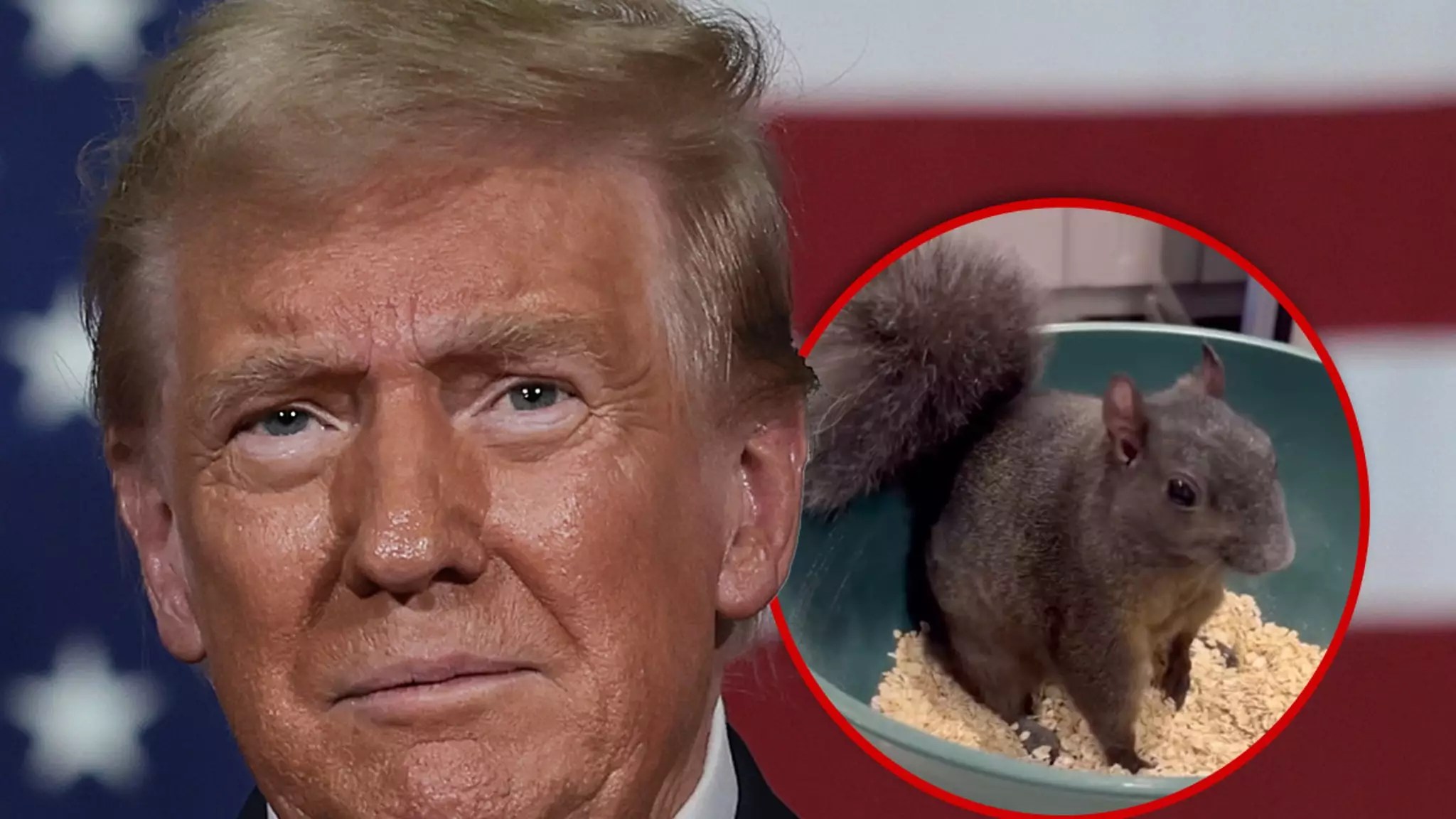On a seemingly ordinary Saturday morning, social media erupted in a frenzy over what appeared to be an explosive press release from Donald Trump’s campaign: a call for justice for Peanut the squirrel. This fictitious statement captivated users on platforms like X, only to be revealed as a hoax orchestrated to capture attention in the digital landscape. The incident serves as a fascinating case study of how misinformation can proliferate online and the implications it carries, both for public figures and for the discourse surrounding animal rights.
The alleged release purportedly quoted Trump expressing solidarity with Peanut, claiming, “If Peanut could have told them he was from Mexico, they would have sent him on his way and given him a hotel room and a $500 gift card to Buddy Squirrel.” The satire in this statement, while potentially humorous, reflects deeper societal issues regarding immigration and animal rights. The sheer absurdity of the situation—creating a national dialogue about a squirrel—highlighted how far social media users are willing to go for a laugh, often blurring the lines between fact and fiction.
In the wake of this hoax, the real story surrounding Peanut—the actual pet squirrel that was confiscated and euthanized—has taken a dark turn. Mark Longo and his wife, Daniela, are vocal opponents of the New York authorities who, according to them, abused their power by responding to anonymous complaints about the legality of keeping Peanut as a pet. The couple has harnessed the power of social media to rally support, amplifying their voice through a platform where Peanut boasted an impressive following of 532,000 on Instagram. Their narrative touches on themes of unjust legal practices, the emotional bonds between humans and their pets, and the disproportionate response from the state.
What is most striking about this incident is not just the viral nature of the hoax itself but the ensuing wave of creativity that followed. As the story spiraled through social media channels, users began to create and share AI-generated art featuring Trump along with Peanut. This trend is reminiscent of other viral moments within the animal advocacy realm, even harking back to incidents like the pet-eating controversy that gained significant traction just months prior.
While the initial press release may have been a joke, it inadvertently sparked a broader conversation about important social issues, from animal rights to governmental authority. The rapid spread of the hoax showcases the peculiar blend of humor, politics, and genuine advocacy that defines social media today. More importantly, it raises questions about our responsibilities as consumers of digital media—whether we stop to verify information before sharing it, and what narrative we participate in shaping through our interactions online. The saga of Peanut serves as a striking example of how even a simple misunderstanding can cascade into a much larger commentary on society.







Leave a Reply